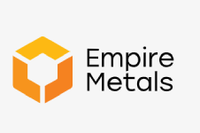The new law will increase taxes and royalties for base metals. Robert Friedland’s Ivanhoe Mines has lost more than 14 percent since the announcement.
A new mining code passed by the Democratic Republic of Congo (DRC) has put copper miners under pressure.
The new bill, which has yet to be signed off on by President Joseph Kabila, will allow the country to increase taxes and royalties from 2 percent to 3.5 percent for base metals. It could also potentially more than double royalties on cobalt.
The current law was introduced in 2002 in an effort to increase transparency for foreign mining companies. It contained a clause protecting miners for 10 years if any changes were made to the legislation.
But the recently passed revision, which has been in the works for five years, says the measures will be enacted immediately. If signed by Kabila, the DRC could significantly raise its revenues, as the country exports about $10 billion worth of copper and cobalt every year.
“One can expect unprecedented lobbying efforts from the sector to change the president’s mind before he signs the revised mining code into law,” said Elisabeth Caesens of Resource Matters, a Brussels-based non-government organization.
After the news, Ivanhoe Mines (TSX:IVN) saw its share price fall 11.34 percent, and continued to trend downward in early trade on Thursday (February 1), closing at C$3.39 in Toronto. Robert Friedland’s company is developing the Kamoa-Kakula project in the DRC, which is said to be among the top copper deposits in the world.
Mining giant Glencore (LSE:GLEN) also lost ground, closing 1.37 percent lower on Wednesday (January 31) and trading down 0.77 percent, at GBX 399.80, on Thursday. Despite the tax hike, the diversified miner is expected to boost copper and cobalt production this year as its Katanga mine ramps up.
Other mining companies operating in the country include London-listed Randgold Resources (LSE:RRS) and MMG (HKEX:1208).
In December, Glencore, Ivanhoe and Randgold wrote a joint statement opposing the new code. They said investors would look elsewhere if the code is signed into law. The chief executives of Glencore and Randgold are said to be headed to the DRC to oppose the new bill.
Don’t forget to follow us @INN_Resource for real-time news updates!
Securities Disclosure: I, Priscila Barrera, hold no direct investment interest in any company mentioned in this article.




